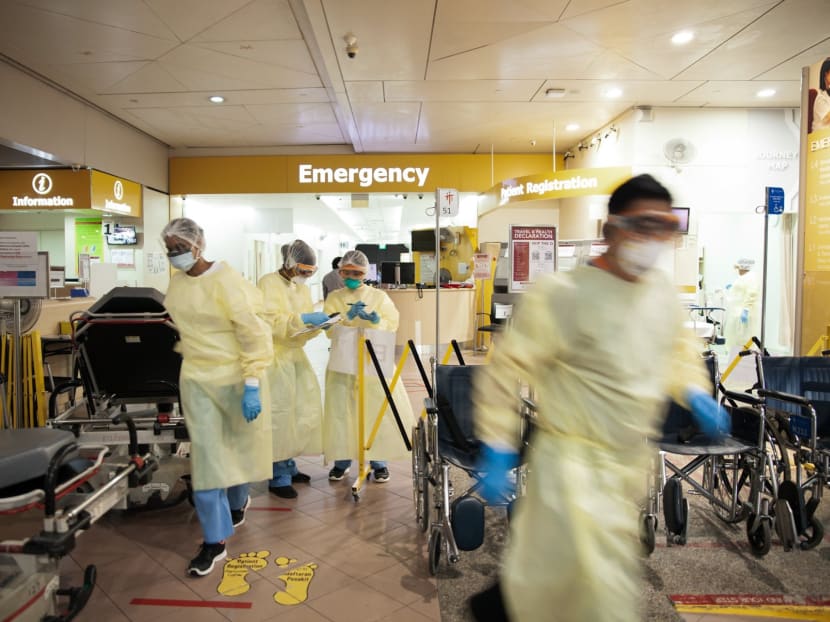Singapore monitoring number of COVID-19 cases in ICU, next 1 to 2 weeks ‘critical’: Lawrence Wong

The accident and emergency (A&E) department at Tan Tock Seng Hospital in Singapore, in a photo posted on Sep 19, 2021. (Photo: Facebook/Tan Tock Seng Hospital)
SINGAPORE: The health authorities are keeping a close eye on the number of COVID-19 cases in the intensive care unit (ICU) to ensure Singapore’s health system is not overwhelmed, Finance Minister Lawrence Wong said on Sunday (Sep 19).
There are currently 14 people in the ICU, but this number “can change very quickly”, Mr Wong said in a Facebook post.
“The coming one to two weeks will be critical as we monitor the trajectory of the infection and our overall hospital/ICU situation,” said Mr Wong, who also co-chairs the multi-ministry task force.
VACCINES DON’T OFFER 100% PROTECTION
"Some have told me that based on our high vaccine coverage, and the current ICU figure of 14, we don’t have to worry," he said.
However, he added that Singapore "cannot afford to be complacent" as ICU numbers can change "very quickly".
COVID-19 vaccines offer protection against severe illness, but Mr Wong pointed out that “we also know that the protection is not 100 per cent".
According to Ministry of Health (MOH) data, about 0.2 per cent of people infected are at risk of needing ICU care.
That may seem like a small number, but it can grow very quickly “when it’s applied on a large and exponentially rising base of infected persons,” Mr Wong said.
He also explained that the figure – 0.2 per cent – could also change over time, if there are more seniors or unvaccinated people who get infected, as these groups are more prone to serious illness.
The length of time a person is in the ICU – which could be more than two weeks – could also drive this number up.
“This is why we must never assume our ICU figures will continue to stay low, or that our ICU capacity will never be put to the test."
He also urged the public, especially seniors or those living with them, to scale back non-essential social activities.
“And test yourself regularly to make sure you are free of the virus, and do not spread it to the people around you,” he added.
Related:
BOOKMARK THIS: Our comprehensive coverage of the COVID-19 pandemic and its developments
Download our app or subscribe to our Telegram channel for the latest updates on the coronavirus pandemic: https://cna.asia/telegram









